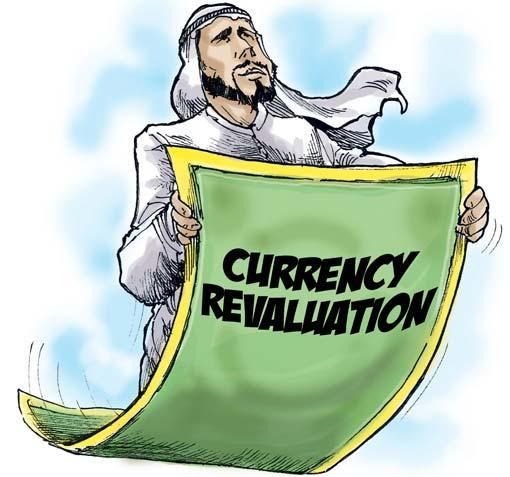Expectation is high that the Gulf Cooperation Council (GCC) states will revalue their currencies against the dollar.
These ideas have been fuelled by the obvious hurt to business and individuals in the GCC states caused by the substantial fall in the value of the dollar, and by several senior government officials around the GCC saying that such a move would be desirable, although the UAE Central Bank governor has made clear that a revaluation should not happen unilaterally.
With the GCC summit coming in December, these comments signal that a revaluation of the exchange rate could be on the agenda.
A revaluation will have a large impact on businesses and individuals living in the GCC, since any revaluation is a one way bet.
By now, anyone with dollars should have moved them into their dirham accounts, so that they can take advantage of the expected revaluation, since they can be sure that the GCC governments will not devalue. What they do not know is when it will happen, and by how much.
There are three possible routes forward for the GCC currencies. Either to float as a group or separately, which would be a disaster; or to revalue by between 10 to 15 per cent against the dollar and keep the dollar peg; or revalue by a smaller amount like 5 per cent and at the same time move to a peg against a basket of currencies.
Fixed rate
The dirham has been pegged at a fixed rate of Dh3.67 to the dollar for many years, and the UAE and the other Gulf states were right to use the fixed peg so that their currencies remained stable.
For all their economic success, their currencies are small in the world financial markets, and if the currencies are floated their economies would suffer badly through the permanent uncertainty that floating would create, and in addition the currencies could easily become subject to speculative attack.
However, the falling dollar has forced a rethink on the old policies. The dollar has depreciated by 8 per cent on a trade weighted basis in the past year, and 22 per cent since 2002.
If the GCC states revalue and keep the dollar peg, they should not then keep intervening to revalue every so often. They will have to catch up at one go on all the loss they have sustained, meaning that a one time revaluation of 10 to 15 per cent is essential to provide the stability that they need.
However, if they decide to peg against a basket of currencies they will be able to get away with a smaller revaluation, since a basket would insulate them against future changes in value without central banks having to continually intervene and proscribe revaluations.
At the DIFC Week, the dollar peg was a major topic. Leading economists such as Lawrence Summers of Harvard and Martin Wolf of the Financial Times agreed that the dollar had still more to fall.
As Summers said of the USA "if you have a large current account deficit which finances consumption, a cyclical downturn, an easing of monetary policy, and extra liquidity from a central bank, it is all negative. The dollar will fall more".
Wolf agreed, pointing out that the dollar is at present at the lowest it has ever been, and that it will fall further. Making the case that the GCC states need currency stability, he suggested that changing the peg to a basket of currencies made sense.
The shift
But despite agreement that a revaluation should happen and probably sooner rather than later, there is no agreement on whether the GCC states should stay with the dollar or move to a basket of major currencies. It is also uncertain that the GCC will be able to move on this in a unified manner. Saudi Arabia seems to want to stick to the dollar peg, and some others favour a basket.
The Kuwaitis have already made their move and linked its currency to a basket of currencies, although the dollar is still the major part of the basket. Other GCC states are angry that Kuwait broke ranks, but they all want the same benefits of avoiding currency devaluation.
If the governments opt for a basket of currencies after years of a fixed dollar peg, a lot needs to be done to adapt to the new regime. For example, many GCC governments keep a substantial amount of their assets in dollars, which will lose value in the GCC when the shift happens.
Such an important change will have all sorts of effects on many businesses: for example banks which keep a lot of their assets in dollars, like the major Saudi banks, will suddenly find their capital ratios reduced.
The more conservative and less flexible states will find a possible shift to a basket hard to manage. The summit in Doha next month will show if the GCC has the political will to repair the splits over this issue and find enough unity to move ahead together.
If some stay with the dollar peg and others move at different times to different baskets, it will be clear that they cannot manage serious economic unity.
They should at least agree whether to peg to the dollar or a basket, and if they agree on a basket, they should agree what kind of basket.
The timing of the change could be more flexible, and this would allow separate states to prepare for any change. But they should not wait too long to move. Uncertainty and waiting for change damages confidence.










